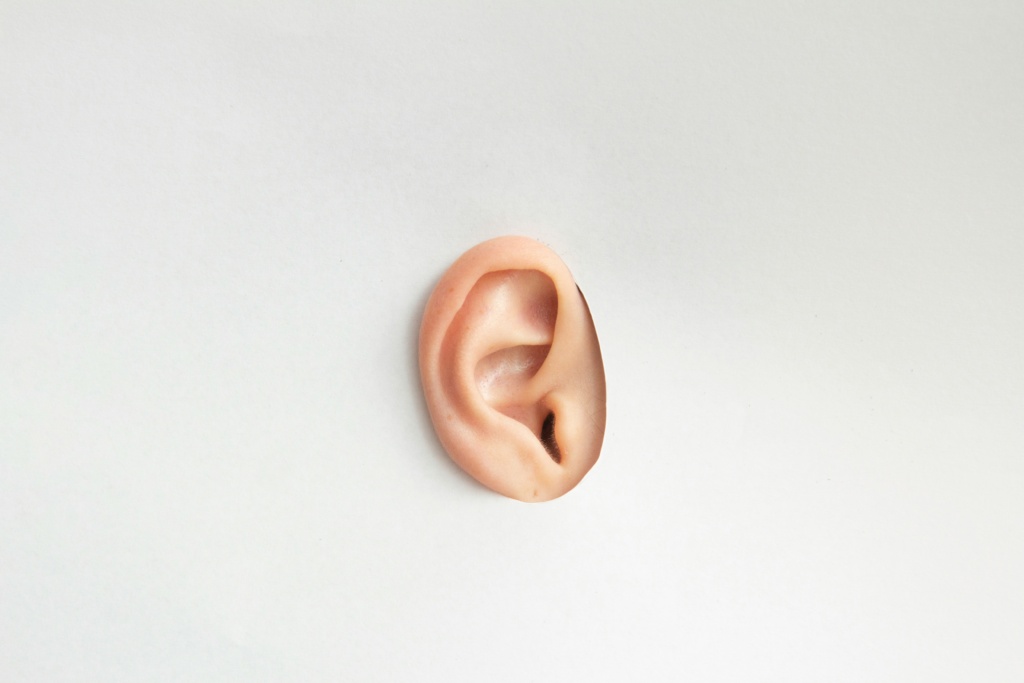Newborn Hearing Screening vs. Hearing Testing

Understanding the difference between hearing screening and hearing testing is important for child development. Many “nonverbal” and delayed language children make their way into my practice because I am a licensed speech pathologist utilizing both conventional diagnostics and alternative methodology. When I hear a parent say, “My child isn’t talking,” the first question I always ask is, “Did your child have a hearing test?” Most mamas quickly reply, “Yes, at birth,” I clarify that they likely had a hearing screening, not a hearing test. There is a big difference, and I want to take time to decipher between the two in today’s blog.
Anatomy of the Auditory System
The auditory system is fully developed at birth and can be divided into four parts.
The Outer Ear: This part of the ear includes the visible ear and the ear canal. Sound travels into the ear and through the ear canal to the eardrum, causing vibration.
Middle Ear: This part of the ear contains three tiny bones called ossicles. When sound hits the ear drum and causes it to vibrate, the ossicles move. This movement sends sound signals to the inner ear through fluid movement.
Inner Ear: This part of the ear contains the cochlea and semicircular canals. Fluid movement within the inner ear stimulates sensory receptor hair cells in the cochlea. These hair cells change movement into electrical signals.
Auditory Nerve and Neural Pathways: This part of the ear comprises auditory nerves and the part of the brain involved with earing. Stimulation of the hair cells sends electrical signals to the brain through the auditory nerve and neural pathways. The brain interprets these signals as sound.

What is Hearing Loss
Hearing loss refers to a partial or total inability to hear sound. It may be temporary or permanent and can be caused by problems in the outer, middle, or inner ear. The type of hearing loss experienced depends on what part of the auditory system is damaged. There are three types of hearing loss.
Conductive hearing loss: this type of hearing loss happens when sound waves cannot travel through the outer and middle ear. Softer sounds may be harder to hear, and louder sounds may be muffled.
Sensorineural hearing loss: This type of hearing loss occurs when the inner ear is damaged, or neural pathways traveling from the inner ear to the brain are damaged. Again, soft sounds may be difficult to hear, and loud sounds may be muffled or unclear.
Mixed hearing loss: This type of hearing loss occurs when there is damage to both the outer or middle ear and the inner ear or auditory nerves going from the ear to the brain. In this case, both conductive and sensorineural hearing loss are present.
Diving a bit deeper now, the three types of hearing loss discussed above can be further divided into the following two categories.
Congenital hearing loss: hearing loss that is present at birth. Acquired hearing loss: Hearing loss due to illness, medication, exposure, or an obstruction such as fluid in the middle ear or earwax.

The Effects of Hearing Loss on Children’s Development
Hearing ability will determine how a child develops speech and language skills. Parents are often surprised to learn that hearing may be a factor when a child is not meeting speech and language milestones. Some parents are even shocked when they find out that just because a child turns their head when they hear a loud noise doesn’t mean that they can hear all frequencies of sounds necessary for learning speech production.
Children learn to understand speech and language by HEARING sounds and words. A child experiencing issues with hearing misses out on this part of development. This can lead to problems with speaking, reading, academic success, and even social skills. Children with hearing loss have more difficulty learning words than those with healthy hearing. They may have trouble pronouncing words or understanding the meaning of different words. They may also have trouble understanding and using more complex sentences or speaking clearly and with appropriate tone and volume.
If you suspect your child may be having trouble hearing properly, the best thing you can do for them is to have their hearing tested. With early help, they may regain their hearing and learn to speak properly.

Hearing Screening versus Hearing Testing
Let’s now examine the types of auditory testing available and how to choose the appropriate path forward.
Hearing Screening for Children
A hearing screening is a quick past/fail test using auto acoustic admissions and auditory brain stem response testing. A pass means that your child shows no signs of hearing loss. If your child fails, more extensive hearing testing will be required. To have your child undergo a hearing screening, seek a professional trained to perform the screening process, like an audiologist.
Hearing Testing for Children
A hearing test or audiologic evaluation is a much more involved measure. It looks for the type, severity and possible cause of hearing loss and discusses available treatment options. An audiologist can also deliver this type of hearing evaluation.
*It should be noted that a child who can hear noise on a pass/ fail screening is not necessarily hearing enough to determine the range of sounds necessary for learning and speech production.
* If your child is not talking, start with a hearing test. As always, we can utilize the results to determine the root cause of delayed speech and language.
Finding an Audiologist for Your Child
Again, the most important thing you can do for your child if you suspect they may be experiencing hearing loss is to have your child’s hearing tested.
Look for an audiologist who has earned the Certificate of Clinical Competence, or CCC, from ASHA. ASHA-certified audiologists have “CCC-A” after their names.
To find an audiologist near you, visit https://www.asha.org/profind/.
For more in-depth, 1-on-1 support:

